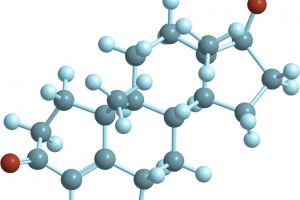CALL TODAY 855-731-9156

 Hormonal changes and hormone loss in men can be experienced throughout a lifetime and are not considered uncommon. Hormone replacement therapy for men can help to improve health and quality of life.
Hormonal changes and hormone loss in men can be experienced throughout a lifetime and are not considered uncommon. Hormone replacement therapy for men can help to improve health and quality of life.
Testosterone is needed to develop the male sex organs. As testosterone levels begin to recede, this increases the risk of heart disease, high blood pressure and cholesterol, osteoporosis and diabetes. Men naturally begin to lose testosterone with the aging process. This begins much earlier than most realize, typically starting around age 30 and peaking around middle age. This is called andropause, or the male menopause. Hormone replacement therapy can assist with keeping hormone levels at a typical level. The problem is when this occurs and the level of one of the sex hormones becomes so high that it is not properly metabolized. Another common hormonal imbalance is hypothyroidism, which is an underactive thyroid gland that is not producing enough hormones.
 Additionally, hypogonadism, which is an abnormally low level of testosterone, either diagnosed at birth or later in life, is one of the most commonly known medical conditions affecting men. It has the potential to cause serious physical and psychological complications. It's commonly called testicular feminization and has been reported with alarming frequency. The body is then forced to use its natural estrogens to fight against the aggressiveness of the excess testosterone. Hypogonadism can include abnormalities in the structure and function of the testes, decreased sex drive, infertility, impotence or osteoporosis. Even though the symptoms are quite serious, the biggest issues with the condition include mood swings, depression, anxiety, depression, and other medical conditions. Some of these are irreversible, and some are treatable, but in some cases, it can be a whole lot worse.
Additionally, hypogonadism, which is an abnormally low level of testosterone, either diagnosed at birth or later in life, is one of the most commonly known medical conditions affecting men. It has the potential to cause serious physical and psychological complications. It's commonly called testicular feminization and has been reported with alarming frequency. The body is then forced to use its natural estrogens to fight against the aggressiveness of the excess testosterone. Hypogonadism can include abnormalities in the structure and function of the testes, decreased sex drive, infertility, impotence or osteoporosis. Even though the symptoms are quite serious, the biggest issues with the condition include mood swings, depression, anxiety, depression, and other medical conditions. Some of these are irreversible, and some are treatable, but in some cases, it can be a whole lot worse.

Hormone replacement therapy is not meant for use in replacing naturally diminishing testosterone. It is used as a treatment to keep the body’s testosterone at normal levels. In addition to the bettering of symptoms like increased energy, sex drive and muscle mass, weight loss and bone mass preservation, there should be an overall improvement in wellbeing and a return to normal life. In working with your hormone therapy professional to determine your unique methods of treatment, the right medications and general health adjustments can help to achieve all of your personal health goals.
Contact us today to schedule a consultation to see if HRT is right for you.
Signs of Hormone imbalance
- Brittle or weak bones
- Low oxygen levels caused by too few red blood cells
- Poor muscle mass or weakness
- Little to no libido
- Mood swings
- Pockets of fat on the body that cannot be reduced with diet and exercise (typically in the belly area)
- Enlarged male breasts
- Low sperm count (may contribute to reproductive issues)
- Fatigue, depression, and difficulty sleeping

Do I need HRT?
Assessing whether hormone replacement therapy is the correct solution usually begins with a blood test to determine levels of testosterone and cortisol and to determine if hypogonadism is the cause. Cortisol is produced by the adrenal glands and is responsible for the "fight or flight" response. This can be accompanied with a check of the reproductive organs to assess proper health. After testosterone and cortisol levels are determined, the doctor will go on to see if the levels of both are causing problems. It is very important to note that the most common side effects are mood changes, impotence, headache, increased sweating, and thinning hair.
Testosterone can be administered in a few ways, including injections, patches or gels. Once the symptoms have been treated, the doctor may then begin to discuss the other options that the patient may choose to pursue. In general, hormone replacement therapy is offered to men who have an imbalance of sex hormones. This imbalance could be from several factors such as abnormal production of testosterone or an increased level of estrogen.

